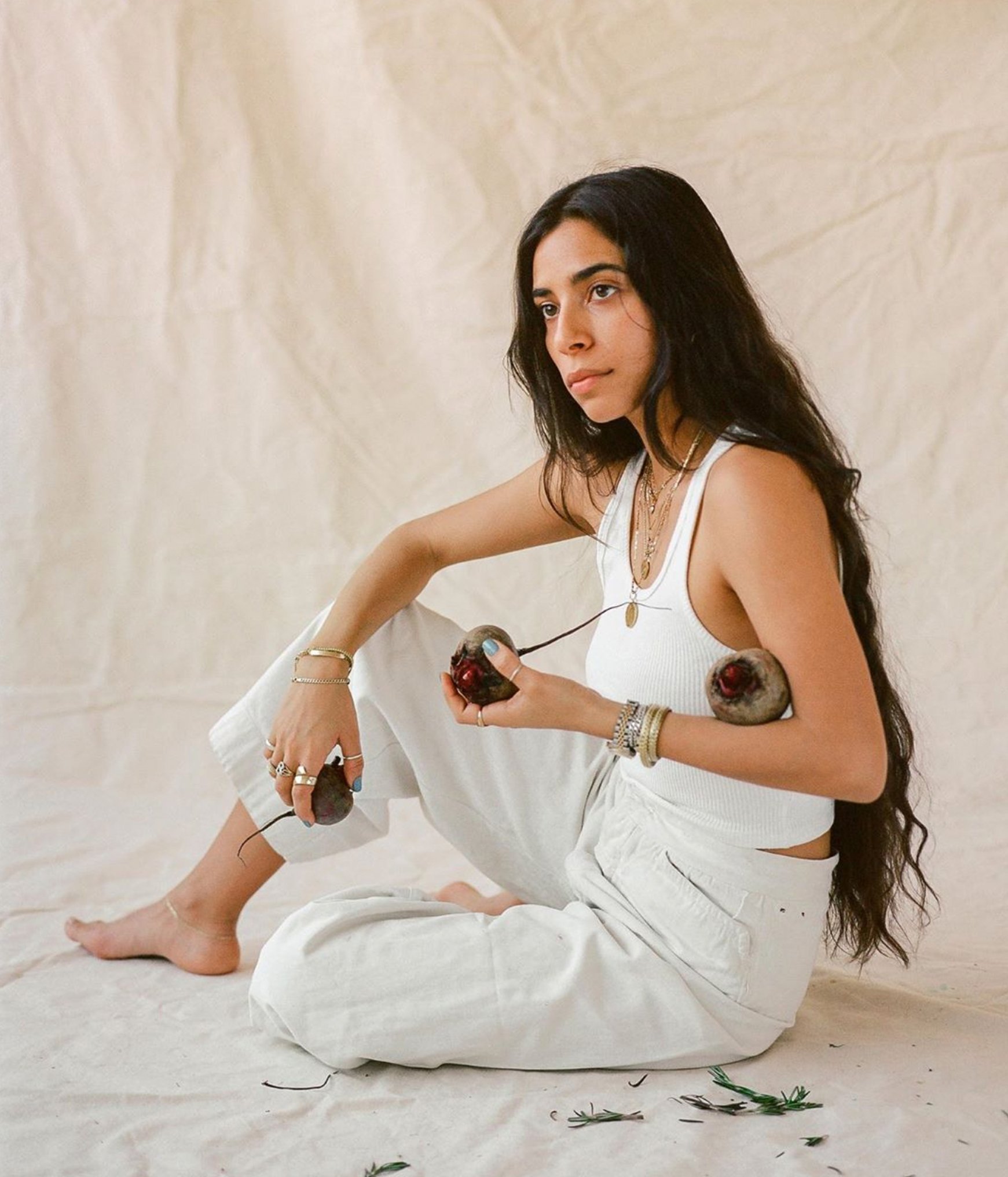
Navigating the world of health, wellbeing and nutrition can be quite the ride in our current climate of information overload and anxiety – where an obsession with ‘wellness’ pervades many people’s everyday thoughts (and wreaks havoc on our bank accounts). As we look towards a new decade, and new resolutions (as per), we also start to analyse the habits that don’t serve us, and explore the ways we can alter them to ultimately become better, smarter, kinder and more productive humans.
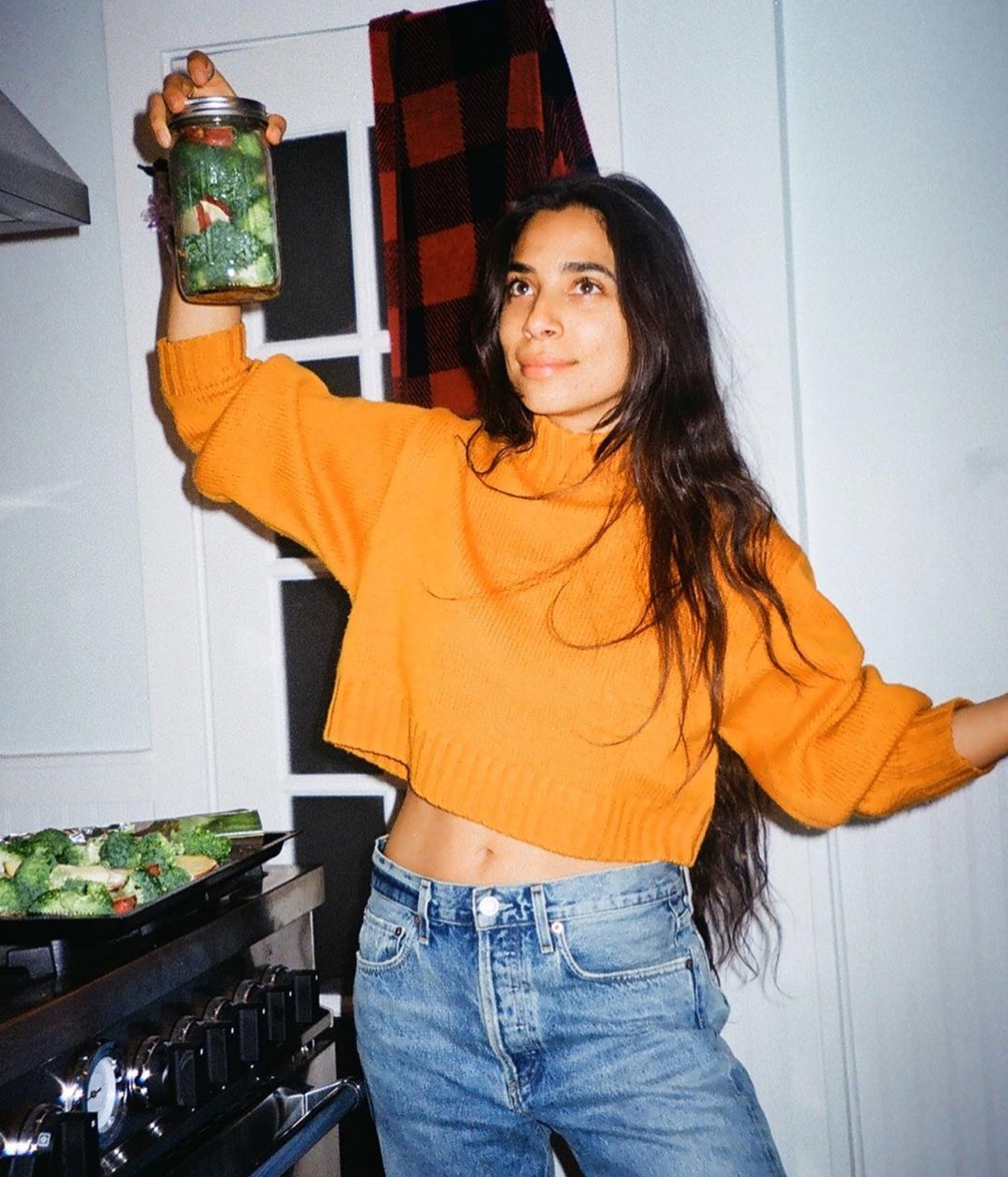
Bianca Valle stands out immediately amongst this noise in the wellness space. A creative first, as well as a certified holistic nutritionist, Valle believes access to information about health and nutrition is our birth right, and has no time for exclusive mindsets around it. So much so, she has opened a nutrition hotline for anyone around the world to call in for 20 minutes (on a donation basis) to speak with her and inform themselves about nutrition and wellbeing. Here we talk with Valle all things diet culture, eating for happiness and the benefits of phoning a friend.
What’s the Bianca Valle elevator pitch?
I am a holistic nutritionist, a painter, and a multi-hyphenated creative. That last bit is not as fleshed out as I want it to be, but I do a lot in the creative space, as well as painting and having my own nutrition practice.
Can you talk a bit about where the idea for the nutrition hotline came from, and what exactly it entails?
My trajectory was in fashion and wellness when I was at Nylon [Magazine], and then Nylon folded, and I got laid off with my team. I wanted to move into a career that felt more purpose driven, and felt like I was working towards my own dream where I couldn’t just be let go from one day to the next. Then I planted seeds in my circle telling people that I really wanted to work in food and thought that might be more like a farmer or catering, and then someone suggested that I become a certified holistic nutritionist and enter a training program ... I felt like it was exactly what I wanted to do. So, I enrolled in school and started posting about my journey, where a lot of people came to me asking for help. I thought ‘I haven’t finished my schooling, but I know a lot more than the average person when it comes to nutrition just because I’m so exposed to all of it all the time.’ I thought, why don’t I open up this phone number that people can call, and we can speak for 20 minutes on a donation basis and I can answer their nutrition questions? And that’s how it was born.
So it’s all donation based?
Yes, my nutrition practice is two-pronged. I have my hotline which anyone can speak to me for 20 minutes and donate, or if by intuition they feel like they need more than 20 minutes I have a more in-depth service where I work with clients by the hour.
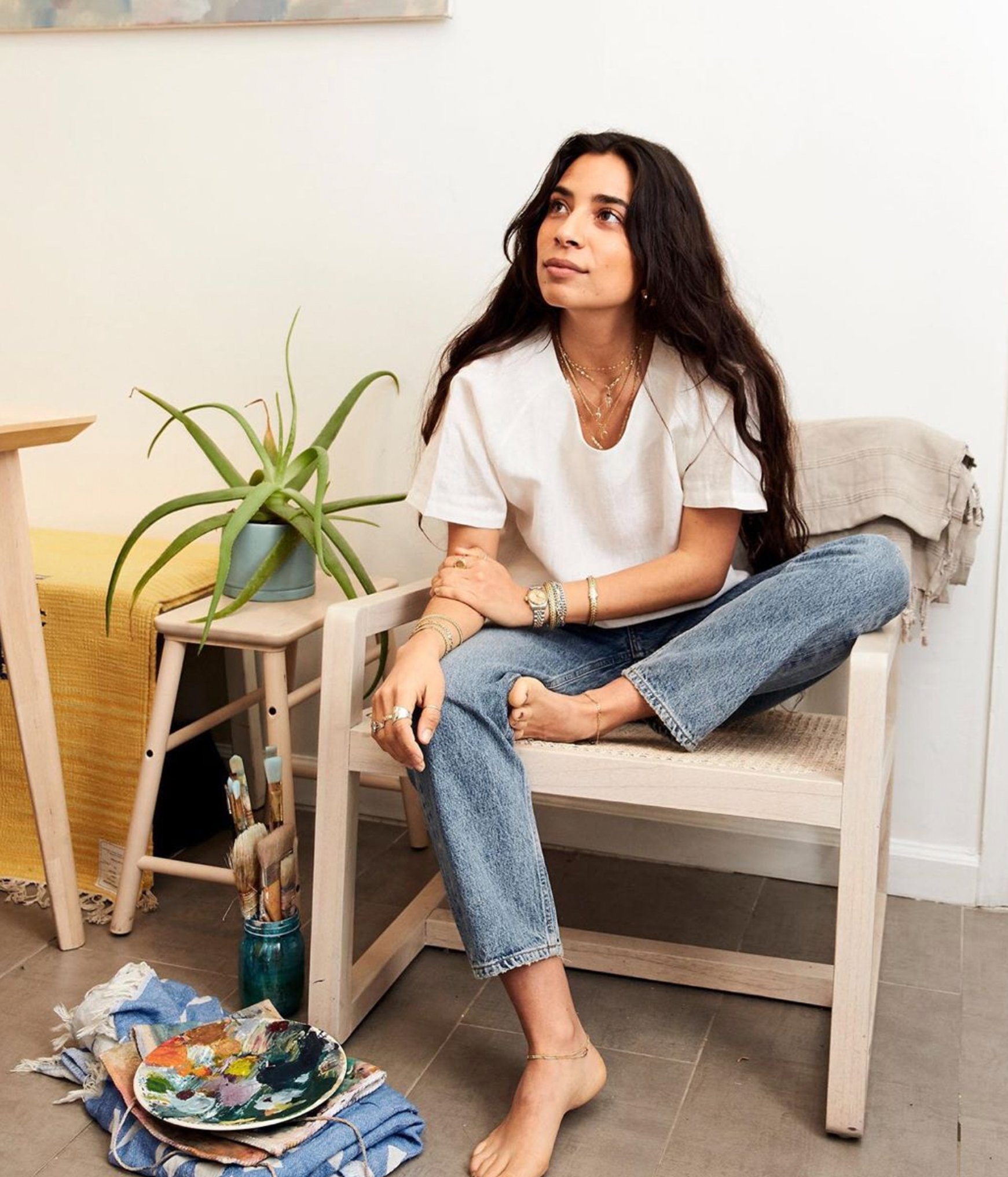
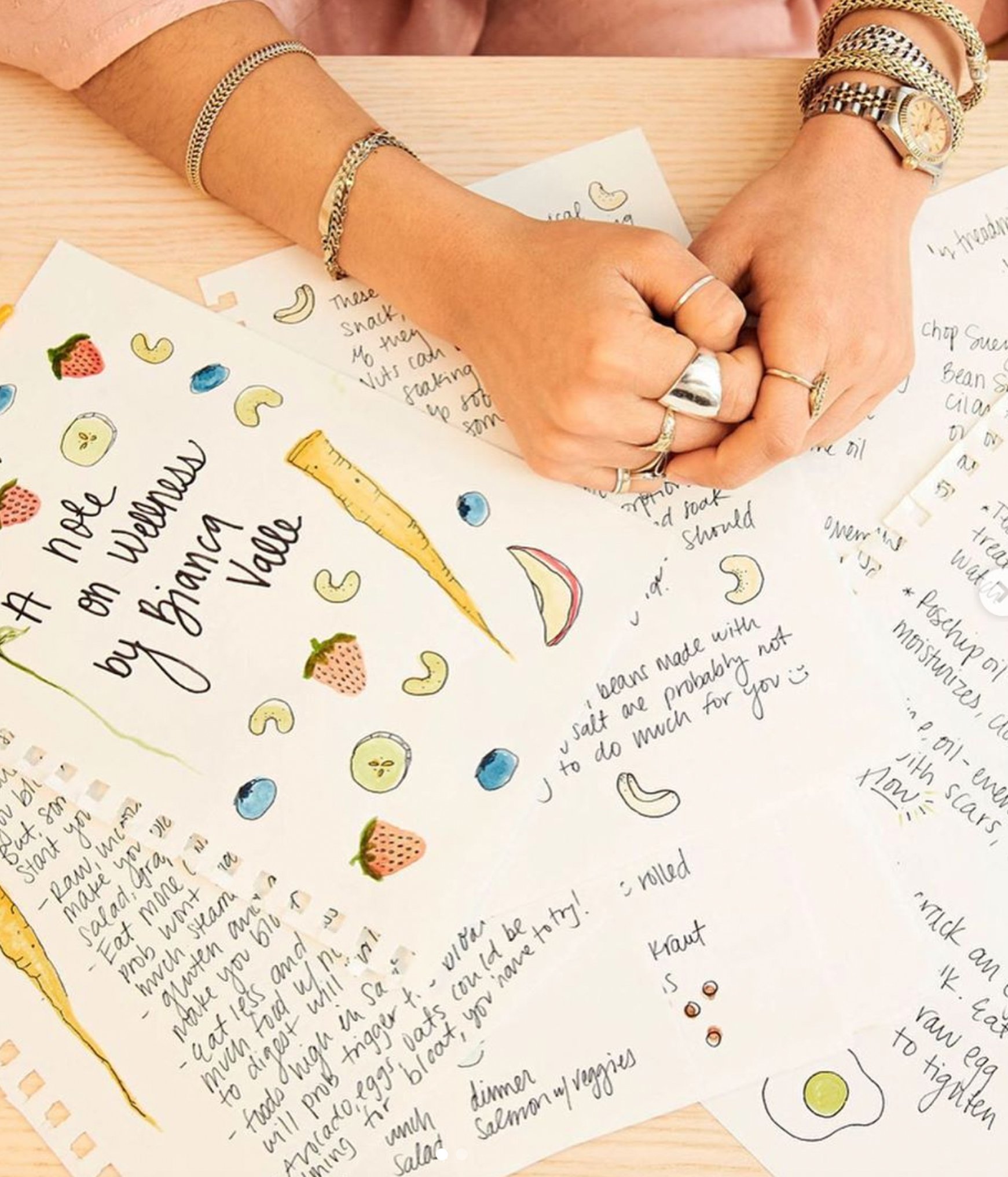
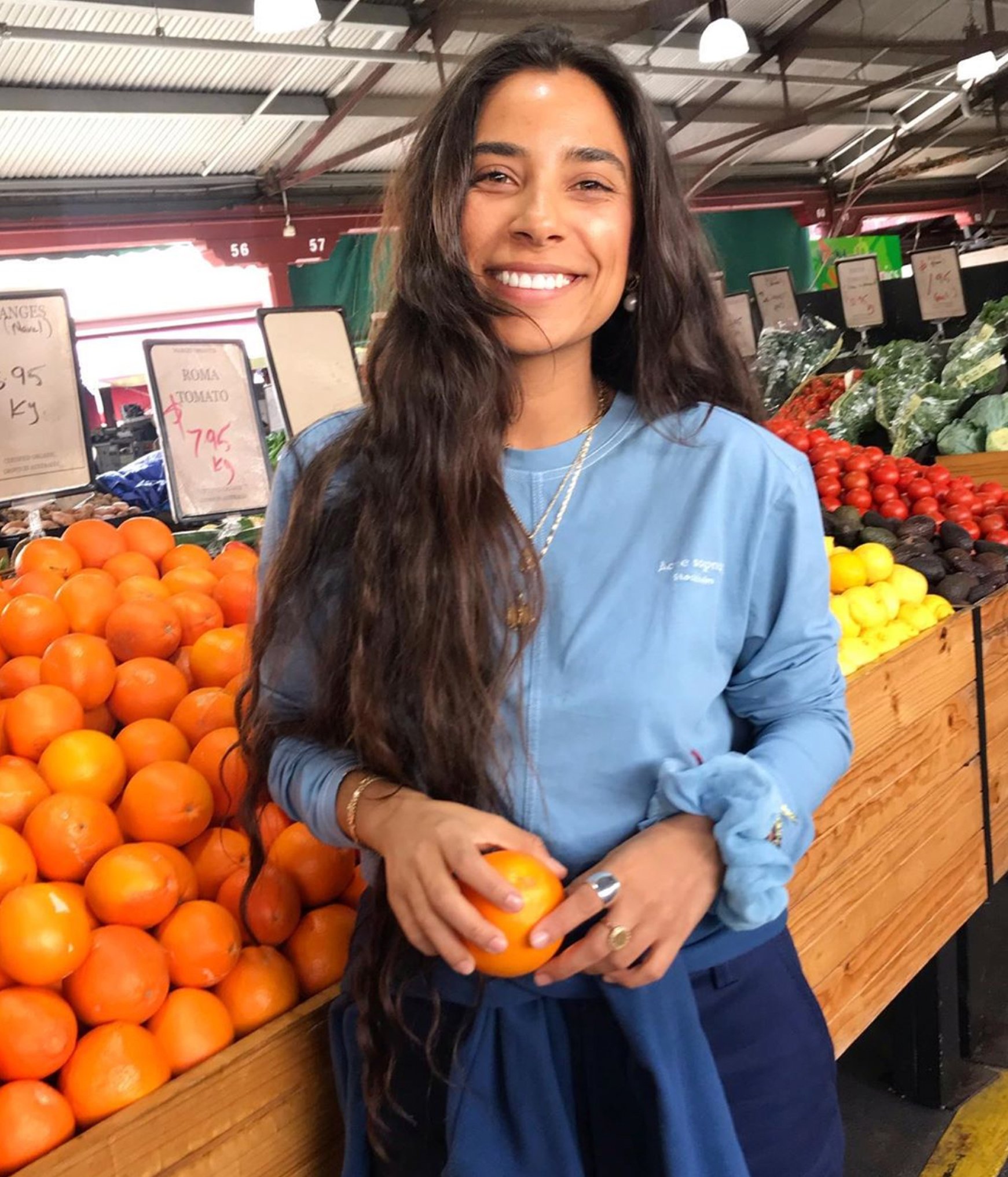
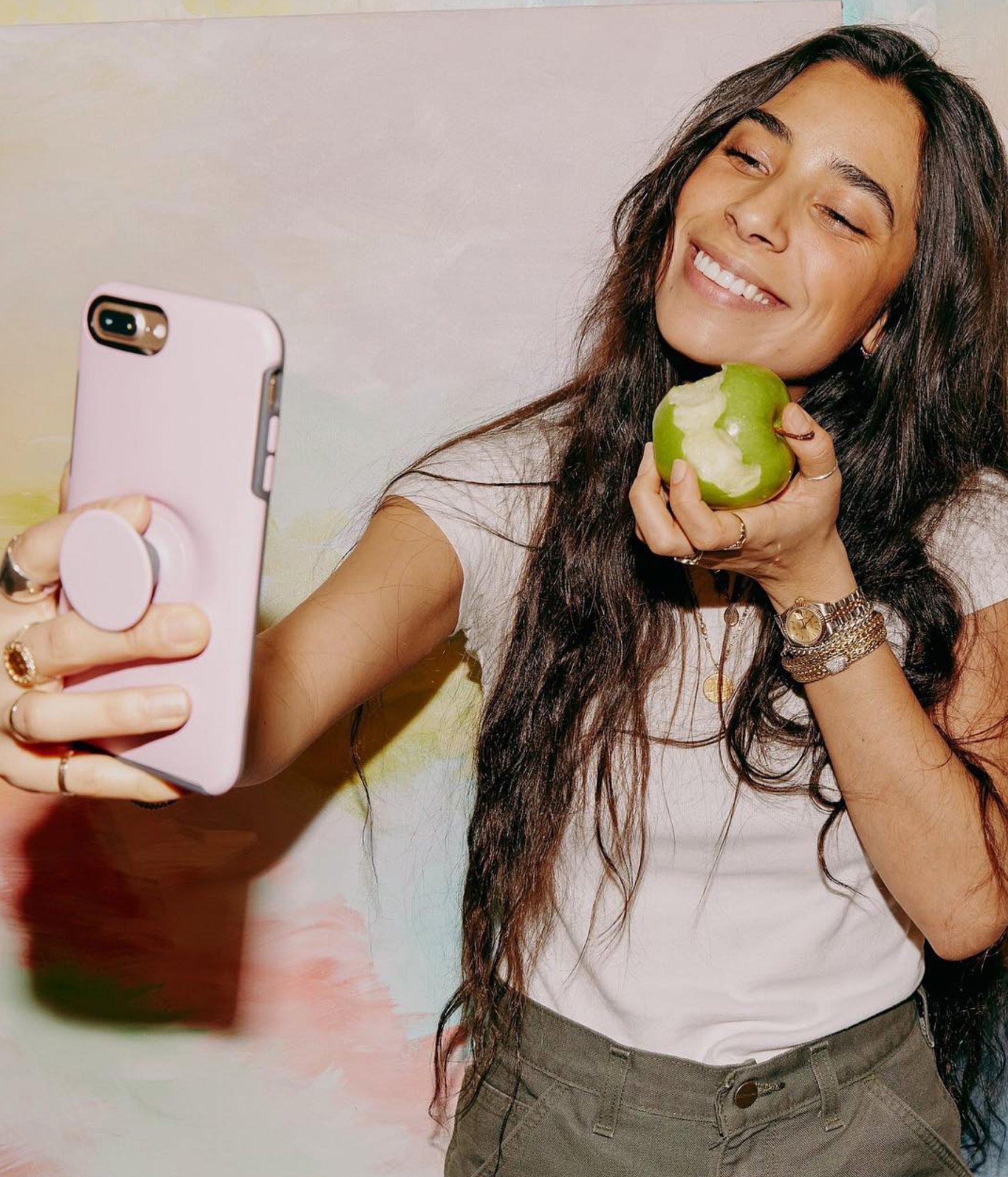
What does wellness mean to you?
Wellness to me means being able to move through the cycles of life with ease and peace.
What does diet culture mean to you? Do you feel like wellness culture and diet culture can intersect?
I think that all of these titles and categories are quite unfortunate. I think that humans like to title everything and categorise them, and I feel like we have artificially invented these titles so that we all feel more comfortable. My take on living well and being well and being healthy is actually quite simple. I’m an activist pushing to revert back to the natural way of wellbeing.
What does wellbeing look like in your eyes?
To just exist the way that humans were meant to exist. We weren’t meant to work 100 hours a week, we weren’t meant to have our heads in a phone screen all day long, we weren’t meant to eat processed and packaged foods. We are meant to eat foods from the earth, we are meant to be active, we are meant to be in nature, we are meant to love, we are meant to have connection. All of these things play into my ideology instead of a ‘diet’ or ‘wellness’, a face mask is great, we all love them, but it’s not necessary for self care.
Do you have a basic formula for eating for happiness?
It often depends on each person because we’re all chemically different, we all have different DNA and bodies, and were born in different places and grew up eating different things. What works for me may not work for my neighbour, or best friend, or for my client, but that being said there are some basic building blocks of eating well to become your best, most free self. I think that listening to your body and staying away from non-nutritious foods is the best way to go. Being healthy is quite simple.
When we think about health, we often think about the language that is used around it and that everything has to be ‘clean and lean’, what are your thoughts on these words being used to describe health and what is your philosophy around well-rounded eating?
I think it comes down to just eating real foods, and then having those trade-offs. For example, one of my biggest trade-offs is alcohol. So, on weekends or if I have a night out with friends, the whole day I probably ate really beautifully and very naturally. If I have that glass of wine, I’m not doing myself a disservice. If in the morning I have (which, never really happens) a pastry, why would I give my body non-nourishing foods to try to figure out? I always try to work it out for others though, if you can’t live without cheese then let’s try to find a way to incorporate high quality, natural cheese to your diet. If you can’t live without alcohol, let’s figure out how many times a week you can drink to stay well.
You mention on your website that wellness today is exclusive - what does this mean for you?
To look back on the age of selling things, the industry has made it seem to the average person that you can buy wellness in a pill, or a powder, or a cream, or an exercise class. Really as humans, when we return to our nature, that’s wellness.
What has your personal journey with wellness been like? Has it always been positive?
I think that when people dedicate themselves to healing, it’s because they’ve had to heal themselves first. I come from a Mexican family, and food is always what brings us together. Every event, every occasion has food associated with it, so I developed a skewed relationship with food because I thought that food was the answer to everything, when in reality food has only a few purposes – one of them being to fuel our entire existence, which is very important – but it can’t be used a place filler or comforter, there are so many roles that food plays now and humans have really began to abuse food. I became one of those people, which lead me to, at a young age, be confused by food. I would not eat, then eat a lot, then cut out food groups, I did a lot of things and I was quite unwell, until I realised that there is actually a good way of existing with food as a healthy partner in life. It’s all about being a sensible human about food, I feel like we are all going to extremes when it’s really just about having some sensibility around the whole thing. That’s why I wanted to work in food and go through schooling so I could spread this message, that there is a way to fuel yourself without having to feel these feelings that we have towards food.
What is your attitude around people feeling shame and guilt if they eat ‘things that are deemed wrong and worth having guilt over?
I think it’s all in our hands. Food guilt and body shame is all just noise. The aim of the game is to just be a healthy, sensible human being around food and if occasionally you eat a non-nourishing food, it’s going to happen! No one lives their life not eating a piece of birthday cake or having a glass of wine. The mentality of ‘getting off track’ sets yourself up for failure. It’s about being an advocate for yourself and saying ‘ok, I had this thing. I’m not dead, I’m moving forward, I did it to myself, if I don’t feel bad - then amazing - if I do feel bad then ok, here is the solution.’ Food guilt is understandable and I myself have had a lot of food guilt in the past. I think I got to a point where I thought ‘ok, I’ve done this to myself, I can’t be a victim.’.
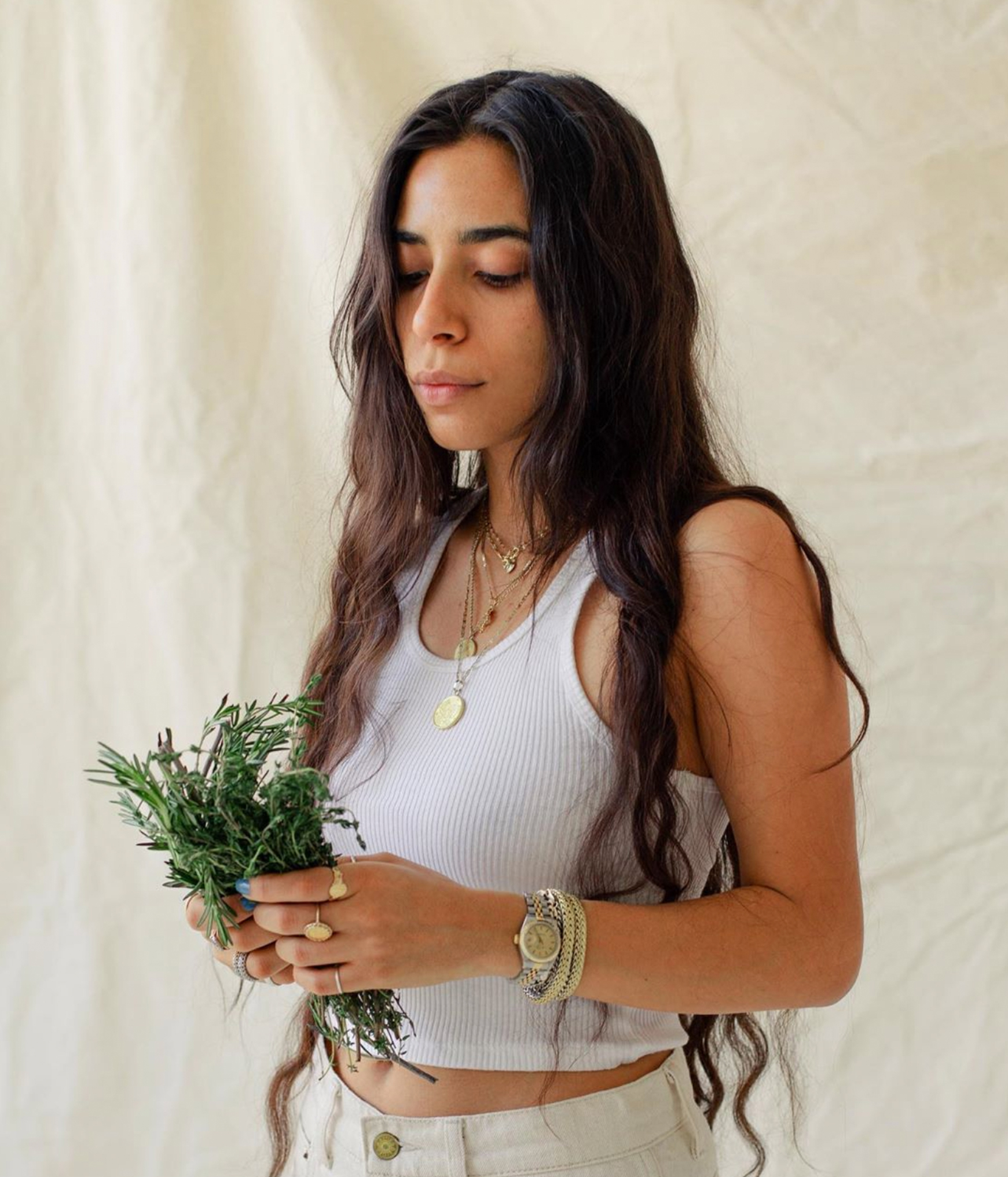
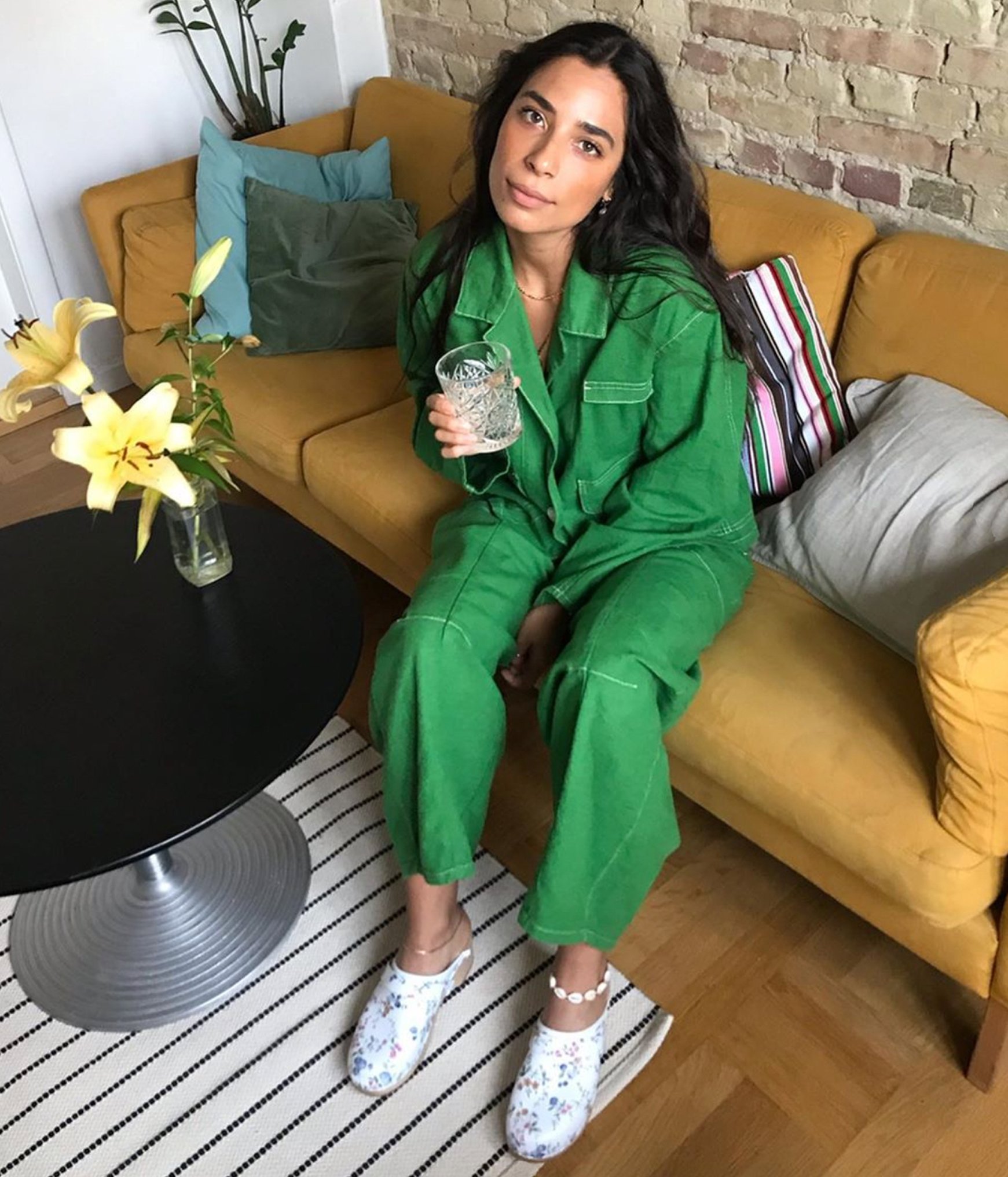
What is your advice for those who want to eat more consciously, but have time and money limitations?
I think that health and wellness and putting wellbeing at the top of your priority list is holistic. It’s about making choices that make you smile, keeping your health levels in check and remembering that we have many, many solutions to our problems and that our decisions are in our hands. I understand money limitations but it’s about reworking our mindset for longevity. A bag of chips will satiate your hunger, but eventually it may become detrimental which is more expensive. You need to make it accessible to look after your livelihood.



